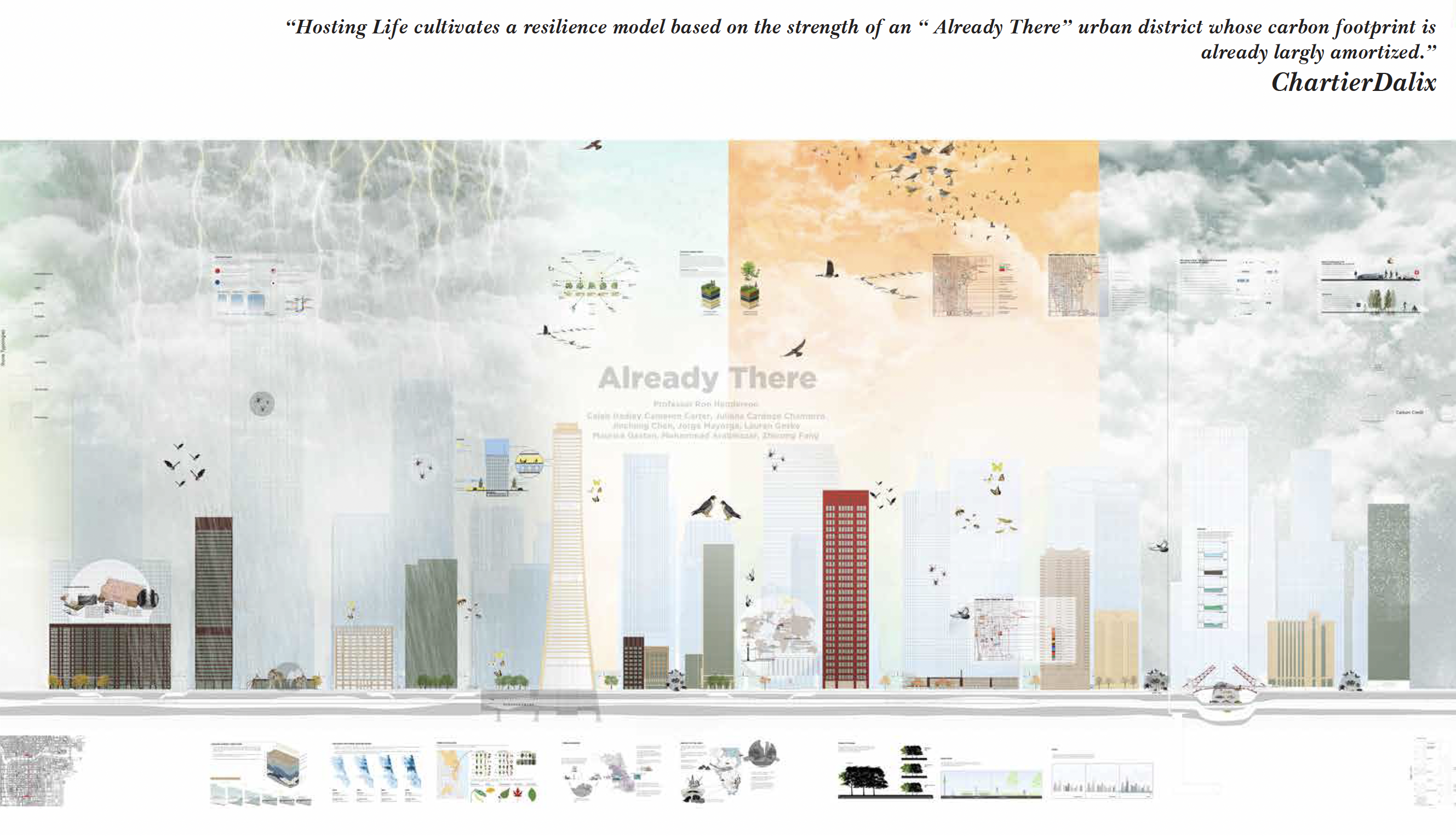
Hosting Life
LA 543 Hosting Life | 2023-2024
Illinois Institute of Technology
DuSable Park should harness the evocative power of landscape in public space as a framework for memory. It should serve as both a “witness” to the past and a “voice of memory” embedded in everyday life. The significance of this project lies in establishing ethical dialogues with the site and the community, eliciting participatory engagement. As a path toward commemoration, it should become a public place of exception—a lasting reminder of the community’s commitment, now and for future generations, to remember this place.
Reimagining DuSable Park is a collaboration between three heritage and advocacy organizations and the IIT MLA+U Program. The DuSable Heritage Association honors Chicago’s first non-Native citizen, the Haitian Jean Baptiste Point DuSable. The American Indian Center provides cultural, social, and educational services to Chicagoland’s large Native community. Friends of the Parks advocates for equity and justice across Chicago’s park system. Working with these groups, the MLA+U studio envisioned scenarios for DuSable Park—a site designated on paper over 30 years ago but still unbuilt. The park commemorates DuSable and his Potawatomi wife, Kitihawa, whose tribe welcomed him into their community.
Since the studio’s completion, the project has gained momentum and entered the public design process. A proposal by student Nick Myers—a flotilla of canoes on the Chicago River to mark a day of commemoration—was inaugurated in August 2024 as a living procession to honor Chicago’s founding family.
The studio is a collaboration with the Parisian architects and urban designers, ChartierDalix, as part of the ongoing Chicago/Paris City/Cité exchange between the Landscape Architecture + Urbanism Program and the French Consulate of Chicago. ChartierDalix outlines their exploration of the La Défense district of Paris and its correlation with Chicago’s Loop as “a reflection for a resilience model based on the strengths of an ‘already-there’ whose carbon footprint is already largely amortized. 'Making a system' is to stimulate this heritage through the creation of a network with a collective dimension; it is to reconnect this set to the constituted city, and to reinvest… in order to reveal the infinite potential of the place.”
This partnership frames landscape architecture as a vehicle for design justice—honoring erased histories, challenging inherited inequities, and re-centering public space as a stage for shared civic memory. Sites should not only be silent and still; they shall be active and activated through programs and interaction. Our work must speak to and address a plurality of publics and generations, becoming a site-specific vessel for testimonies, for emotions and thinking, and for democratic discourses.
